|
Guest Post by Hillary Doerries Edited by Maureene Danielle Post Design by Christy Zigweid Photo by Skeeze via Pixabay CC made using @WordSwagApp Looking back on my life, I can confidently say that my struggles with depression began when I was in high school. I remember having days when I would cry and cry for no obvious reason. Life was good – loving parents, an attentive boyfriend, and a seemingly bright future. But the sadness would strike out of nowhere, and there was no telling when it would end. My parents – especially my mother – would try to cheer me up by leaving me handwritten, encouraging notes on my pillow; or an uplifting card in my lunchbox. No one, including myself, had any idea what was going on or how to handle it. A handful of years later, I started seeing a therapist when I was in graduate school. After a conversation I had with Mark, the man who would become my husband, where I admitted that things that seem easy for other people just aren’t that easy for me, we decided that seeing a counselor was the next best step. We discussed my symptoms one by one: the days where I couldn’t get out of bed for class. My irrational anger and irritation toward the people in my life. My past relationships that failed because of my unfounded jealousy and unrealistic expectations. My extreme mood swings that I could never predict. My tendency to hole myself up in my basement apartment for days at a time. My general solitary, negative outlook on the world and my place in it. I was a mess. I was never good enough. And I never would be. Cognitive Behavioral Therapy (CBT) helped to rewire my brain and taught me how to look at my world differently. It was tough work. One therapist I saw during my last year of graduate school often gave me homework to take home. Things to ponder, charts to fill out, and lists that tracked my mood at the end of every day. I had to somehow make sense of layers and layers of emotions that were just beginning to surface. I feared those close to me would leave. I learned to look at the hard evidence: what clues or information did I have that confirmed that this would actually happen? Many times, there was no evidence. After a time of practicing this type of mindfulness, my fears lessened, and I realized that I was not so alone after all. It was also by seeing a therapist that I finally had a diagnosis for my struggles: Major Depressive Disorder, or MDD, coupled with General Anxiety Disorder, or GAD. For me, it was important to have a name for what I was going through, if for nothing else, to confirm that what I was feeling wasn’t my fault. Therapy was only a piece of my healing process. There were also drugs. Lots and lots of drugs over the years: Wellbutrin, Lexapro, Zoloft, BuSpar, Cymbalta, Klonopin, Effexor, Deplin, and Abilify, to name a few. Photo by frolicsomepl via Pixabay CC It was a constant battle to find the correct combination of drugs. My medications were always being tweaked and adjusted, and each adjustment was always preceded with a crash in my mood. But I picked myself up and was back in the doctor’s office each time. It was also a battle to find a psychiatrist who would listen to me and not just dope me up with the latest drug. I’ve seen every kind of doctor from a general practitioner to a psychiatrist to a psychiatric nurse. Then, after six years of taking psychotropic medications, I gained over 100 pounds and I began to take medicine to counteract the side effects of the antidepressants: fish oil for high cholesterol, Levothyroxine for thyroid, and Metformin to help regulate my blood sugar. Now I was fat, still depressed, and looking for a way out. In December 2014 I had a plan to end my life. I was overworked, stressed out, mad at the world, and in general, not taking very good care of myself. After an argument with my husband at work, I got in the car, floored it home, and went upstairs to my nightstand. I took a bottle of Klonopin out of the top drawer and through tears and cries of desperation, decided that while a part of me wanted it to just be done and over with, there was a larger part of me that wanted to figure this out. Somehow, I got back in the car, drove myself to my local inpatient mental health facility, and checked myself in. This move shocked some, but for me, it was the safest place to be for a few days. I stayed there for four days and completed all the tasks that were set before me. I met other people who were struggling, saw a new psychiatrist, who adjusted my meds, and cooperated with the nurses. After four days, I was ready to come home. Photo by PublicDomainArchive via Pixabay CC The next couple of years were kind of fuzzy. I was functioning – going to work, completing everyday tasks, and was social enough to see and be seen by others. But things still weren’t quite right. Despite continued therapy and my cocktail of medication, I still felt there were persistent, undulating waves of depression that accompanied my everyday being. Sometimes the waves were small and not very noticeable. Other times they were loud and clear. I slept a lot during the day. Often I could only work for a few hours before feeling like I needed to go home and recharge with a nap. My psychiatrist kept adjusting my meds but I couldn’t shake this unsettling feeling that my life could be better. I just didn’t know how I was going to get there. I remained this way for several months - just kind of existing in a fog. It was like looking at myself in the mirror without my glasses, my face blurry and misshapen. The months rolled by until finally my psychiatrist told me about a relatively new type of treatment for those with persistent depression for whom medication didn’t seem to cut it. It was called Transcranial Magnetic Stimulation (TMS) and my own doctor happened to administer it right in his office. I discovered TMS works very much like an MRI. It’s a large machine that emits magnetic pulses meant to stimulate the brain’s pre-frontal cortex so over time, it can relearn how to make those good brain chemicals on its own, therefore possibly eliminating the need for antidepressants. After going round and round with the insurance company, I was finally approved for the treatment. TMS is a big commitment. I had to be at my doctor’s office every weekday for six weeks in a row for about an hour at a time. For those six weeks, my life and my daily plans revolved around my TMS treatments. I ended my TMS therapy in April 2016 and I can say with confidence that going through TMS was a profound gift of new life for me. First, my mood has stabilized. People that know me often comment that I seem lighter and have more life behind my eyes. Sure, I have ups and downs as anyone does, but I am better equipped to deal with them in a level-headed, rational way. I still take naps, but now I take them because I want to, not because I feel like I have to. The best part is my doctor has started to wean me off of my antidepressants. I’ve been on the drugs for over six years now, so the process is a slow one, but by this fall, I hope to be rid of all of my meds. Photo by geralt via Pixabay CC While we may not know it as we’re plodding through the journey, we are changing every day. Even the small steps we take to help ensure a better quality of life help us in big ways down the road. We have to believe, even when we feel stuck, that things won’t remain difficult and stagnant forever. As someone who has just managed to get my head above water regarding my mental illness, I want to tell others to never give up. Keep fighting for your mind and your health. Try new things and be an advocate for yourself, because at the end of the day, nobody else can but you. And above all, if you are suffering, reach out and share your story. If nothing else, your bravery in doing so will prove to you that you are not alone. To our health, Hillary Doerries About the Author
4 Comments
My diagnosis is ADHD, depression, and anxiety disorder. I have suffered with depression for 5 years and my anxiety for 1-2 years. I have fully recovered from my depression and have slowly, even without realizing it, found ways to cope with anxiety. I’ve come to the realization I have to cope with my ADHD the rest of my life. I suffered with my depression for a year in college, where I studied office administration, and in that year I barely made it through alive. Right now I am taking time to work and do research and figure out what I want to do. I have thought about being a counselor, teacher, or anything that involves helping those with mental health problems, where I can inspire others in tough situations. Some of my passions and coping strategies are: Listening to music. At times when I'm feeling anxious, music helps me ease my thoughts on the situation. When I feel ready to react properly to the situation, I feel more confident and aware of what I should feel and think in the situation. Inspiring others: I'm passionate about inspiring others with the knowledge I've gained through my experiences and recovery. I've inspired, given advice, and helped people (including those who suffer from mental illness) with my first blog. I currently have a new blog on Tumblr where I still inspire others. Being creative: When I set my mind to something, I’m finding new ways of thinking differently & creatively. I make sure my thinking is positive, inspiring, beautiful, encouraging, uplifting, happy, and creative. Being optimistic: The movie Tomorrowland with Britt Robertson and George Clooney, was very inspiring to me. I've come to realize in the things that I do and believe in, that I never give up and always find a way to make it work. Now that I've finished recovering from my depression, I realize I can fully embrace the person that I've been hiding even before the depression. In my recovery, I’ve learned how to be confident, love myself for the first time, and not letting anyone or anything hold me back. I now have so many plans I want to do with my life. I feel more myself than I've ever felt in the 19, almost 20 years of my life. And lastly, I am truly proud for all that I have accomplished with my recovery and all it gave me in return. I may have suffered from life-threatening illnesses, but I am here alive, mentally healthy, and happy, which I will never take for again. Near the end of my recovery, I actually started to really and honestly feel that love within myself. Loving myself for the very first time feels amazing. Versions of this story were also posted on: My story is posted for team not ashamed, May 20, 2016 My full story can be found on Medium. About the Author
Guest Post by Joseph S. Fusaro Edit and Post Design by Christy Zigweid Picture made using @WordSwagApp It was the spring of 2013. It had been 3 years since my last psych inpatient stay for schizoaffective and general anxiety disorder and to this day, I still say my symptoms were from excessive cigarettes, Adderall, benzos, and the 6-10 joints I was smoking a day. I never had a problem with any of these meds before, but after 2 years, they stopped working and I would go from ADHD and general anxiety straight into psychotic and schizophrenic episodes. But, before I get into 2013, I need to explain what happened after my last inpatient stay in 2010. Held against my will for over a month and a half, I learned the hard way that sarcasm mixed with psychosis is really a bad idea in urgent care; a sentence of 45+ days and a monthly shot of Haldol is what one gets for not being compliant. I could not stand the fighting, the older lady defecating on the floor in her room for fun, the nightly argument of what terrible 1980’s movie would be played, the medication line, the bedtime, and the patronizing of patients from the guards and nurses aids. I hated that they gave me a handful of downers and then told me I could not sleep during the day. I would skip out of every group activity and the guard would open my door, knock, and tell me to wake up, then stare at me while he or she feverishly took notes on my current state to give my doctor. I was so exhausted I knew I had to comply because I never wanted to go back there. After this stay, even though I started to make up with friends and family and being a little more social (I was now getting out once a month instead of once a year), I was prescribed a month long injection of Haldol which was literally stealing the life and soul from my body. (I later found out from a drug rep at a NAMI event that Haldol was a drug from the 1950’s and they only give it to people in the public hospitals that have no money. He said it was outdated and dangerous). I could not eat. I could not think. My muscles were spastic and twitchy, and I know that I was at the beginning stages tardive dyskinesia, even though my psychiatrist denied it. He would stare right at his notepad, never my eyes, and say, “You are still shaking, but that is normal.” I would think, “Well doc, I felt a hell of a lot better when I was on anything except this garbage in a vile.” Photo by Ajale via Pixabay CC Every time I went to a psychologist I would tell him that I am one bullet or handful of pills away from death. I was numb and in serious physical and mental pain from the Haldol. I could not socialize. I had major, major depression that he was ignoring. I guess, in his eyes, as long as I was not psychotic, we were winning this health war, but I felt very different. I had to make a change. I had to make a change myself because there were too many people making decisions about my life. There were too many outside sources ripping the book that was my life apart. I finally could not take it anymore and in the winter of 2012, I made a decision which looking back now, may have saved my life. I decided to find another psychiatrist. I told him the whole truth of exactly how I felt every moment of every day; how extremely depressed I was, how much trouble I was having thinking and focusing, and how I needed something to help me sleep at night. I conveniently left out my other psychiatrist and the medication I’d been on. I believed in my sick and tired mind, this new doctor would prescribe me things to balance or offset the garbage my original doctor was forcing me to take. And, to my amazement, it worked. The new doctor prescribed me Adderall (a lot of Adderall I must say). I also got my best friends Xanax and Clonopin back. This felt like Christmas. I filled my prescriptions right away and before I even left the pharmacy, I had 40 milligrams of Adderall sliding happily down my little throat. I swear before they even hit my happy stomach I knew this was going to work. The Adderall was going to counteract the Haldol and I was going to be free again. Well, at least until they stopped working again, which after a year or two of overdoing it, they always stop working. While this was not a cure-all, just a Band-Aid over a Band-Aid over a 30-year-old bleeding infection, I was feeling okay for a short time. I was still far from healthy, but it got me out of bed every day. It started going to family events and hanging out with friends. For a year or so I thought I had found the answer to my mental illnesses. I thought that I was finally on the ever so famous and glorious “road to recovery.” While I was more active and social, there was one issue holding me back. I could only be around people or hold conversations for a maximum of 2 hours. After this, I would lose all interest and focus and my brain would start to take a launch into space. While I had to keep my visits with others short, the more I went out, the longer my visits became. When I had to go to a family wedding in Florida, things started to take a nasty turn. I was extremely nervous. I had not been on a vacation or a plane in years. I had not seen my family or been around people for more than a couple hours in years. In my mind, there was only one way to power through all of these strong emotions and that was with Adderall and benzos. What I have learned time and time again with this combo is that: 1. It only works if you can keep them to minimal dosages and 2. You cannot take them at the same time or alternate them (Adderall is for days and benzos are for nights). So yeah, I totally abandoned that theory for my trip. Coincidentally, the drugs then abandoned me. Somehow I made it through the trip, but my sleep schedule got completely screwed up. From the moment I got home and laid on my couch, I knew I was entering a bad phase. When I was just about to fall asleep, I had a dream that someone was whispering in my ear and I knew that the lack of sleep caused the racing thoughts and nightmares to begin again. Now it was just a matter of damage control for me. Could I keep this from becoming mania or psychosis? I knew if I just took my Seroquel every night I would pull through. What I did not calculate was that if I was taking between 40-100 milligrams of Adderall every day I was going to need a lot more Seroquel. I was a mess and didn’t have any answers, but was not ready to admit defeat. Photo by Unsplash via Pixabay CC Days started going extremely fast. I would wake up at 7 or 8 am and take an Adderall, then I would go back to sleep for a couple of hours and wake up at 11 am or so in pain. The only thing that eased my pain was another Adderall. I used to always know when mania was starting because I would write with vigor. I wasn’t writing poetry, prose, an article, or even thoughts, just my opinions on anything and everything. I could connect the dots to anything. I could tell you why the sun came up. I could tell you why I fell off my bike when I was 7. I could tell you why birds lay eggs. Then I could tell you that all 3 topics were scientifically connected…via the power of God. I was working on a book that I called Loose Associations, which if I ever decide to put it together and release it will probably only make sense to 1% of the 1% of people that live with schizophrenia. I did not have these psychotic symptoms all the time, but I can assure you for my stints of psychosis I was not even in this galaxy. I lived in a world of telepathy gone mad. I lived in a world of nuclear war gone everywhere; friends were at war with friends, and family was at war with family. I was on the lookout for it 24/7 and hiding from it any way I could. I thought that alone, I was chosen out of every person in the world to fight and end this war so that the “regular people” did not have to be bothered. I thought that I was named Commander and Chief, then given a sword and horse. All of the Justices, Presidents, Prime Ministers, Kings, and Queens looked at me and said, “We need you, Joseph. God speed, kid,” and sent me off to save the world. I later found out while I was in my internal war that I had scared the life out of everyone; my family, friends, doctors, and pharmacists. After an all-night battle with myself, I walked out of my room at 1 pm and decided I was going to take the day off and watch a Mets game for the first time in a few days. Wait, it was the last day in June? I had not sat down to watch a game in over a month? I did not have any proof but I could sense that one of my friends had told my family that I was a mess and it was only a matter of time before my family called the police on me. I knew what was coming. I needed to leave and get out of here now. Was there any way I could get from my house to the airport without anyone noticing? I checked my Twitter app and what I saw was my latest post was at 4:15 am. It had happened again, my mind had won again. I left an embarrassing trail of every thought that crossed my mind (which I thought were kept on my private on my public profile) and every battle I’d fought. I’d left thumbprints of every moment, fear, and illness via likes and posts. I can distinctly remember the few random replies from people who wanted to start a political or racial war with me. They had no idea that I was fighting this war and disease internally. They had no idea I was in shock and awe of the things I was reading, watching on the news, and thinking. They had no idea I was fighting a war for peace. My tone was that of fear, not anger or rebellion. Photo by geralt via Pixabay CC I could sense my what-had-become-routine-pickup-by-the-police coming every time. You’d think I would have known by now that when I started to sense someone was going to call my doctor or police behind my back, I would stop taking the controlled substances that made me walk around my house talking a mile a minute to the air. And when I heard the siren, I sighed, knowing what was coming. My heart and cheek bones swelled up with emotions. I could feel the air around me thicken, and I slowly started to drown in the embarrassment and anxiety. I’d done it again; blamed everyone else for my addictions and dependence. The officer knocked and said, “Hey Joe, can you come outside with me for a second? I just want to talk. I promise no one is going to take you from your home.” (They always make you go outside for their safety. I knew that he was lying. He came here with one intention and that was to take me from my home to the home). At that point, I could deal with one more embarrassment for the sake of my well-being. I tried desperately to stutter my way out of it for a few minutes and he became impatient. But, this time, I was given an option: “You can come gracefully with me or we can call an ambulance and strap you down. Joe please, just walk with me.” So I did. I gave up. All I could think was that I had let everyone down again and the next week to a month was going to be the same pain from a few years ago that I thought I was done with. It was going to hurt so much. I was going to be so sick. And on this Independence Day, I was surely guaranteed to be alone and far from free. That Independence Day hospital stay was my last and from that day forward, I have stayed sober and reduced my meds down to just Seroquel for sleep. For some strange reason or by the grace of some force that is stronger than me, I found a great doctor in 2013. He was the first doctor that I could tell had faith in me. He encouraged me to tell my family and friends how I truly feel and to try and repair my relationships. He taught me breathing exercises and self-compassion. He taught me about eating healthy and getting sufficient rest. He not only prescribed me medication but he made me believe in me, which is something I wish a doctor would have taught that six-year-old kid with depression. As of 2014, I can feel the change of seasons again. Holidays feel like special days again. I have friends and family I can call if I am having a bad (or even a good) day. Now that I am focused on the right things I am finding that I attract more of the right people and the right lessons. I can honestly say for the first time since I was a kid, that I am happy. Every once in a while I still feel a little behind the game when all of my friends are getting married and having children, but I know that I have been so patient for so long that if I keep the right attitude good things will happen. I now know that I cannot search tirelessly for patience, peace, or love to add to my life because I already have it. I just take a deep breath, smile, and think, yes I am happy, but I am not done yet. I may have lost everything but I did gain one thing: I have a constant desire to spread a positive message that there is hope for those with mental illness. There is no reason to feel ashamed and you are not alone. This is all I have and I am making it my responsibility to shine a light on mental health. About the Author
Surviving Survival is really difficult.
Sometimes, surviving is actually worse and harder to overcome than when the actual events happened. Kelley, The Survivor Coach, knows this all too well. She has survived many things. She has lost children, molested as a child, has lost both of her parents, breast cancer, divorce after many years of marriage and an almost successful suicide attempt. Her mission in this life is to help others not only survive but THRIVE in their survival. She has created her own tools to help those who can relate to these things and those who suffer from depression and suicidal thoughts. This is her story.
Guest post by Annalise Sinclair Editor and blog post designer: Christy Zigweid Photo made using @WordSwagApp The semester of college right after I was diagnosed with bipolar disorder was the worst of my life. I was in a terrible relationship with a real loser. I was on a highly competitive, world-ranked winter guard team, which I never, ever felt good enough for. I stupidly decided to take on way too many credits in school. I had just joined my sorority and wasn’t prepared for the time, energy, or self-commitment. I was struggling to figure out my identity as someone saddled with a mental illness. Essentially, I ran myself into the ground and then decided to dig a little bit deeper, just for good measure. Somehow in the middle of all this, I found some time to adopt a kitten. I grew up around animals and had convinced myself that if I got a kitten, everything would magically get better. My aunt (another crazy cat lady) took me to the local Humane Society to “look around,” knowing fully that I couldn’t leave without my own ball of fur. So insert Addy, the cutest, spunkiest kitten you’ll ever meet. Photo courtesy of Annalise Sinclair Unfortunately, getting a kitten didn’t solve all of my problems; shocker, I know. I found myself sinking deeper and deeper into depression, which felt impossible to overcome. I felt like my only out would be taking my own life. Living each day was so hard and all I wanted was some peace. Suicide seemed so serene, like I could finally get some rest. I planned everything out: I cleaned my apartment so no one would have to bother, figured out my method (something simple and painless), and wrote a goodbye to everyone that I loved. However, there was one problem. I had no idea how long it would take for someone to realize that I wasn’t answering my phone or showing up to things. I was worried that Addy would have to go too long without someone giving her food or water. I couldn’t be responsible for both of our deaths. So I drove the 45 minutes home to drop Addy off at my parent’s house. That is when everything changed. My mom had come home early from work that day and had already started dinner. My plan to drop off Addy and run was no longer feasible; I had to stay and pretend to be the happy, wonderful daughter and sister my family knew. It was all too much and for the first time in my life, I finally broke down and talked to my mom about what I was feeling. I told her I was so unhappy that I considered suicide. The pain in her eyes was more than I ever wanted to see. I knew I had to find my courage and do whatever it took to get better. I couldn’t hurt my family by taking my life; my personal pain would never amount to the pain my death would have caused them. I started seeing a new therapist the next week. I often think back to that day, my decision day where I chose life over death, and think about what would have happened if I had never gotten Addy or didn’t care about her well-being. Suicide isn’t rational and I’m thankful that it isn’t. My concern for a kitten saved my life. So when people reproach me for being a crazy cat lady, I couldn’t be more proud. For if it wasn’t for a sassy cat and an irrational love, I wouldn’t be here today. About the Author
Article by Nikki W Editing and Post Design by Christy Zigweid Photo made using @WordSwagApp Photo by debw07 via Pixabay CC The day my daughter was born was the day my eyes truly opened for the first time. When my heart swelled as never before, I suddenly became aware of a consideration much bigger than myself. Any concerns or preoccupations about the life I should have been living became insignificant as I was introduced to a reason for my existence. My real purpose in life. To care for this innocent being and enable her to become all she could be. Before I became a mother I struggled with periods of depression. During those times I would feel a great want for peace that could perhaps come if I just didn't exist. There were no cries for help or a want for attention, I had no intention of taking my life, I just felt the world wouldn't notice if I just wasn't there. As I compare the life I lead now (physically and emotionally) to the life I had back then I can't help but wonder if finding a purpose for one’s existence can overturn a life of depression. 10% of the UK’s population will experience depression in their lifetime. This critical illness is much more than simply feeling unhappy or fed up for a few days; we all go through spells of feeling down. It’s when you feel persistently sad for weeks or months and it’s something you can’t "snap out of" by "pulling yourself together." According to a recent study led by the World Health Organization (WHO), global failure to tackle depression is costing the world nearly $1 trillion a year in lost productivity and causing “an enormous amount of human misery.” The study urges the international community to make mental health a priority, as without scaled-up treatment, a staggering 12 billion working days – or 50 million years of work – will be lost to depression between now and 2030. As unique individual’s, depression can vary from person to person and can happen for one or more reasons. In many cases, the first time someone becomes depressed, it’s been triggered by an unwelcome or traumatic event, such as a bereavement, divorce, or assault. Occasionally it may appear for no obvious reason. Whatever the cause there appears to be left a lack of purpose to ones’ life that sits like an empty hole, thereafter getting filled in with a consuming sadness. Yet for me, in a single moment, my illness was lifted and replaced by something more worthy. Now, there are about a million things online telling you how to find your true purpose in life. If you're feeling unmotivated, unsure of yourself, aimless, can't find your passion, directionless, not clear on what your ultimate purpose is, it appears you’re in good company — many people are in the same boat. The journey to finding ones’ true purpose can be a lifetime of searching. This is different, having a life with no purpose at all gives us no reason to exist. As said by Ralph Waldo Emerson “The purpose of life is not to be happy. It is to be useful, to be honorable, to be compassionate, to have it make some difference that you have lived and lived well.” Whether we are conscious of this life aim matters not, the affect will be the same. We are all born with an innate drive to achieve an individual purpose(s). From the moment of our birth we naturally set ourselves developmental goals to achieve. This then, can be replaced by emotional targets ever changing as we evolve along our life’s path. Some are more consciously aware of their wants and then in-turn purpose to be strived for. Whereas other’s follow where the wind may lead, the purpose is still there. When we are stripped of this reason to live, our innate drive has nowhere to direct itself and therefore self-grieves until we can give it a new goal to work towards. Finding a purpose big enough to shed the depression cloak is no small feat but conscious effort loosens its hold. Deciding to do something to help yourself is the most important conscious step you can take. Try to recognise patterns of negative thinking when you are doing it, and replace it with a more constructive activity. By connecting with others and participating in the environment around you, your drive is given an opportunity to discover a new focus to its attention that might otherwise be ignored. Let awareness of purpose arm you with strength to over-turn your depression. About the Author
Article by Paul Banuski Post Design by Christy Zigweid Edited by Maureene Danielle Photo made using @WordSwagApp I recently marked two years since my suicide attempt. Two years of avoiding alcohol, of taking medication, going to therapy and trying to remind myself that I’m good enough to keep staying around. Some days are certainly easier than others and I’d be lying if I said I wasn’t troubled or tempted or haven’t been tested over the last two years- hell, in the last two weeks. But so far I have fought off every single attempt to knock me off of the path of recovery and self-improvement. To be honest with you, the hard days are still really hard and I think it’s possible that I’m only one bad day away from failing. The road ahead of me stretches out, winding through deep valleys and shadows, with who knows what waiting for me, lurking around each bend. There are days when I worry how much progress I have made and I fear that it’s laughable how I struggle for inches rather than miles. And all those miles still to go… Well, it is a trick of perception. When you live with depression, you can pick up on these tricks. After all, that’s what depression does- trick your brain into pain and anger and sadness. In my most recent therapy session, we spent some time going back over my progress so far. How when I came to therapy two years ago, I would struggle with things that I do today without a second thought. I have managed to reign in some of my worse impulses (the quick and cheap relief of getting drunk) and to tackle problems head on rather than turn my head away, hoping they will disappear. I can throw the brakes on my train of thought when it begins to speed up and threaten to careen off of the tracks. Mindfulness practice has taught me to recognize negative and judgmental thoughts, and to process them in a healthy way. When I take a longer view I can see just how far I have come and how different I am from the man I was two years ago. I now worry less about the years to come and try to live the moment, and to take each day as it comes. And if I pause once in a while by pulling back and looking down the road ahead with fresh eyes, I can still see the valleys and I can still see the dark corners, but they are broken up by gentle rises and bright straight stretches. And then I refocus on the present day. About the Author
Mental Health Flash Cards are a tool designed to distract us from all of our distractions. They are supposed to help us refocus on the important things and truths in our lives. Mental illness took a lot more than my happiness and physical health in my teens and 20’s. It took away my confidence, hope, faith, and trust in myself and others. I went into isolation, away from friends, family, and society for over 5 years because I felt like no one understood me, nor would they ever. I felt like people were always giving me advice such as “go for a walk, read a book, volunteer,” which is great, but they did not realize that I did not even have the tools to do this. I could not walk, not because my legs would not move, but I did not even have the thought or confidence in myself that I could actually accomplish a short walk. It was like I had a mental paralysis and I could not connect the dots from me staring at a wall in my room to actually achieving a walk. There are a ton of things that have to happen in between these 2 events. For example, getting my breakfast; I would have to put on clothes (preferably one’s that I would be comfortable walking in), I would need to have the confidence to show my face in public, I would have to know how to communicate (or at least understand simple things like traffic and pedestrian laws, directions, balance, strength, resilience, etc.) Sometimes I wonder if it would have been easier if the person that came in to tell me “go for a walk,” also added, “Hey Joe, I know it is hard, but I have faith in you. You used to walk just fine a few years back. I can walk with you. We can get in at least a mile today, and I promise we will work on it until you are comfortable walking again. You are strong. You can do this. I will be there if you start to feel dizzy or anxious. I will never judge you.” By looking at these cards we can start to rebuild all of the things that are broken that others, including doctors cannot see. Mental Health Flash Cards are your coach when you cannot afford a coach. Mental Health Flash Cards are your friend, when you cannot find a friend. Mental Health Flash Cards are designed to bring your focus back to you, because in the end you need to be happy with you before you can start accomplishing tasks for others again. I hope this tool helps you and I look forward to making more and sharing them with you. Thank you and remember, I have faith in you. Joe 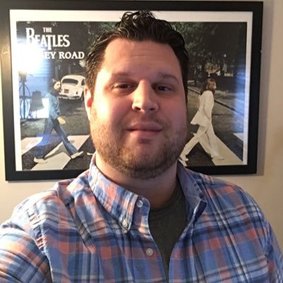 Joseph S. Fusaro credits writing with helping him dig his way out of a serious bout with bipolar 1 (manic depression) in his late teens and 20's. Joe was a cast member in the 'This Is My Brave' New York City show this past October and looks forward to using his experience with mental illness to help others realize there is hope for a positive and productive future. In addition to music and poetry Joe has blogged for the mental health organizations NAMI, Conquer Worry, and This Is My Brave. Joe published his first book, a chap book featuring poetry and lyrics he's written, called A Little More Time and it's available for purchase on Amazon.com. A portion of the proceeds from the book are donated to This Is My Brave. Connect With Joe: Twitter: @jsfusaro Instagram: @jsfusaro Website: www.hellopoetry.com/jsfusaro
Jennifer Marshall shares the story of her Bipolar diagnosis, having children, raising children and blogging about her journey. She discusses the challenges of the stigma of mental illness and the non-profit she founded called This Is My Brave, Inc.
Her blog www.bipolarmomlife.com was awarded Top Blogger status by Healthline in 2014 and 2015. 
About Jennifer Marshall
From her website: 'Writing openly about living with mental illness inspired me to co-found a non-profit called This Is My Brave, Inc. which provides a platform for people to share their story live on stage through poetry, music and essay.' Blog: www.bipolarmomlife.com Twitter: @BipolarMomLife Facebook: @BipolarMomLife |
Build Your Action Based Stress Reduction System
Popular PodcastsOlympian Suzy Favor Hamilton - From Fame to Prostitution to Advocacy
Hall of Fame Basketball Star Chamique Holdsclaw on Mental Resilience Diana Nightingale on her husband Earl Nightingale's Principles for Mental Health Success JoAnn Buttaro on Date Rape & PTSD Survival Story: Its Never Too Late Gabe Howard on BiPolar Advocacy Phil Fulmer on Teen Suicide Prison, Bipolar and Mania with Andy Behrman Columbia Univeristy's Dr. Rynn on OCD Archives
March 2018
Categories
All
|

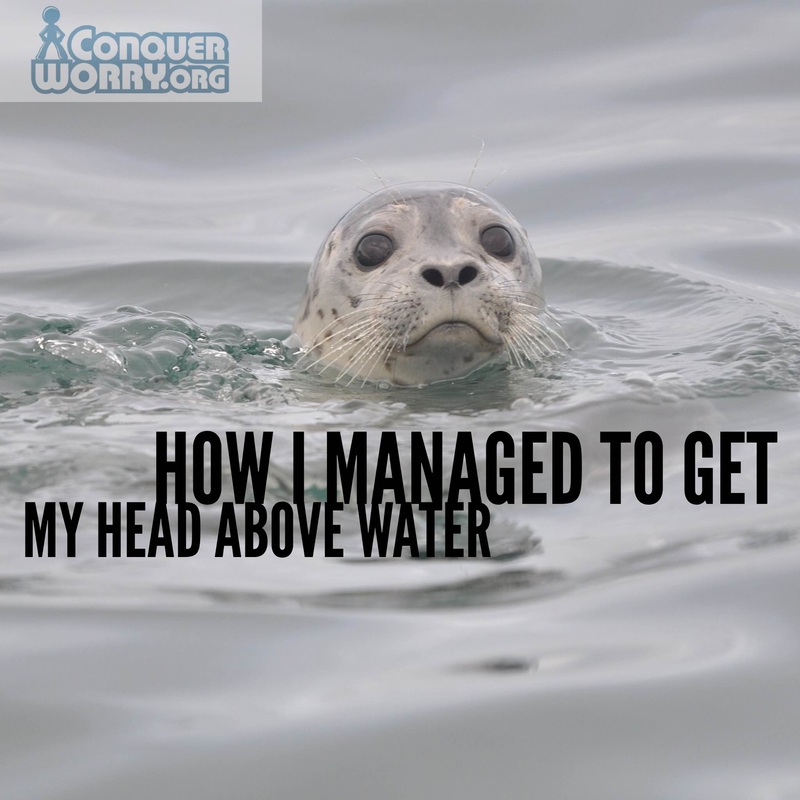


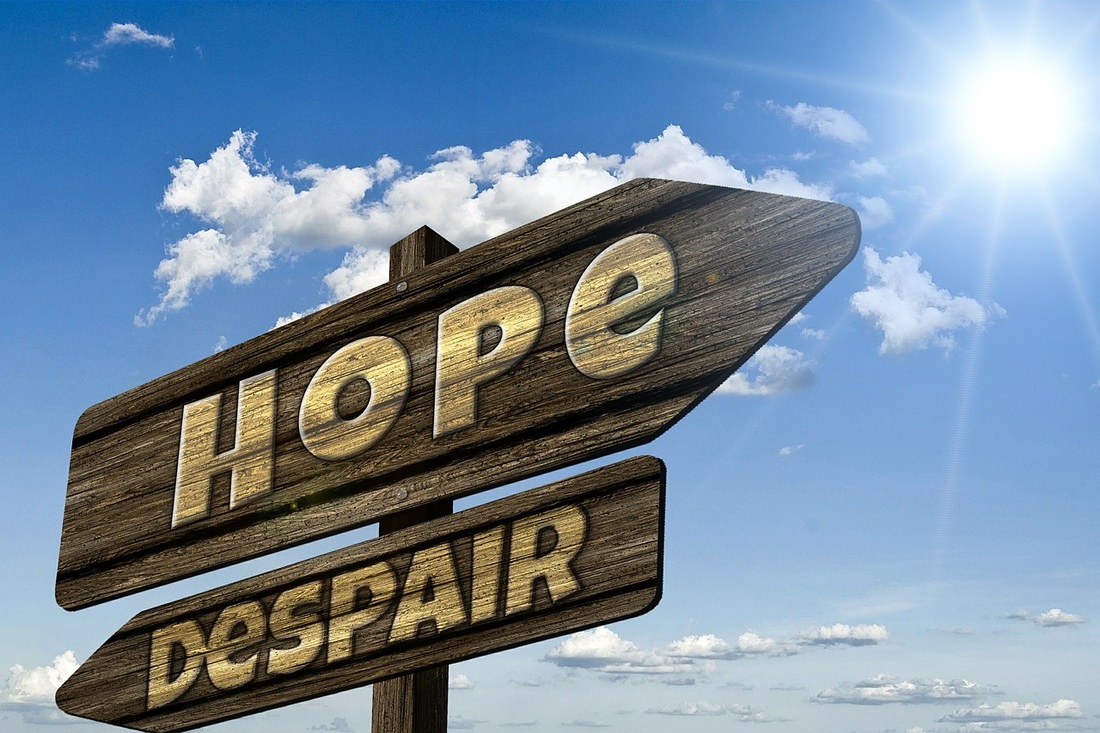

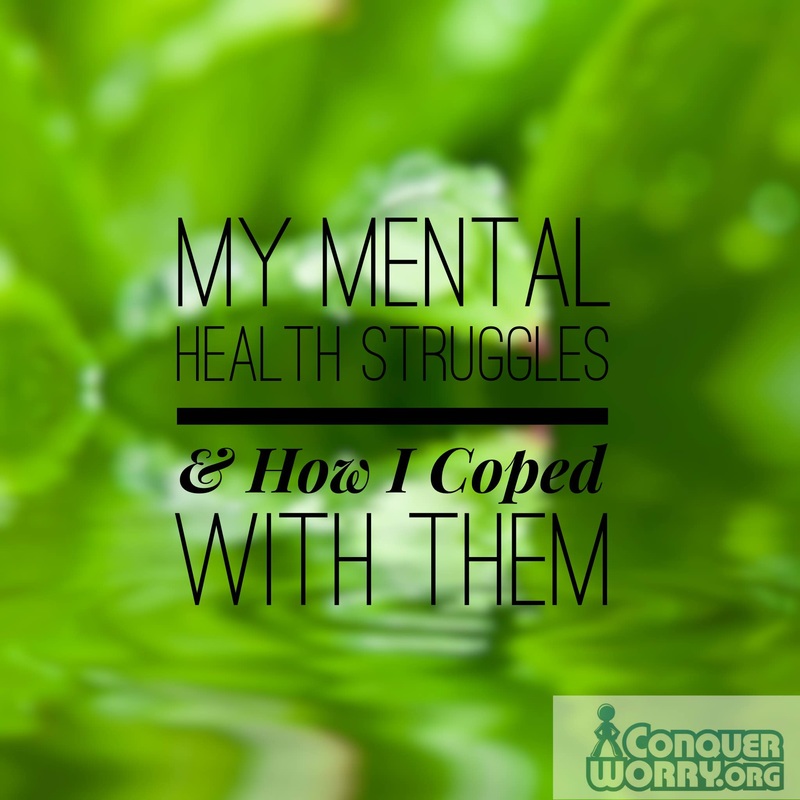





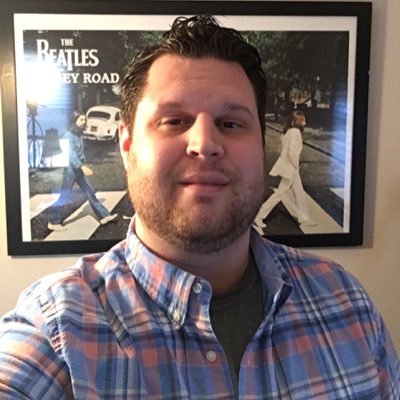
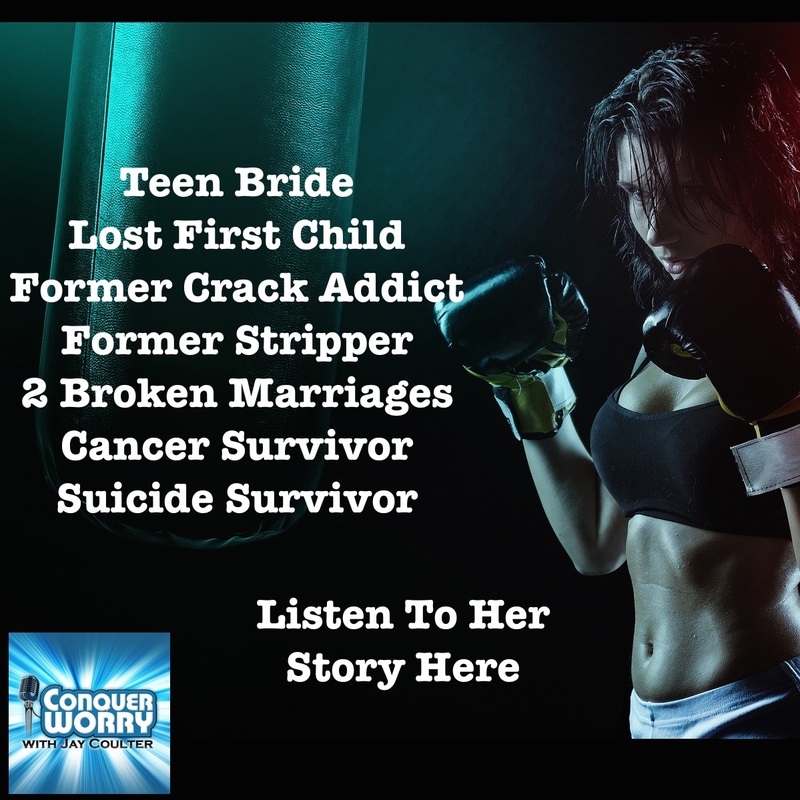

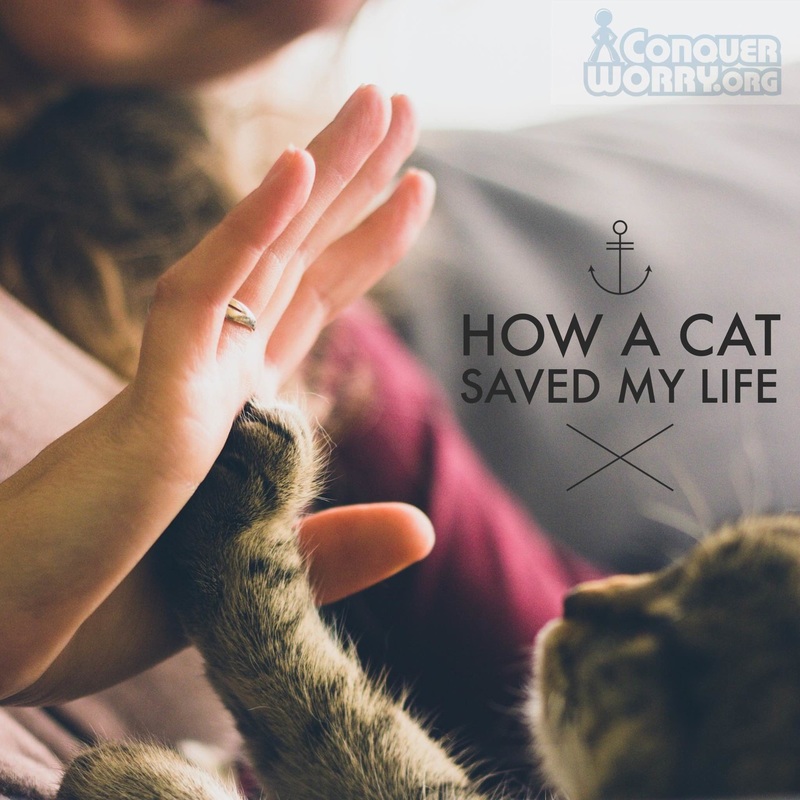
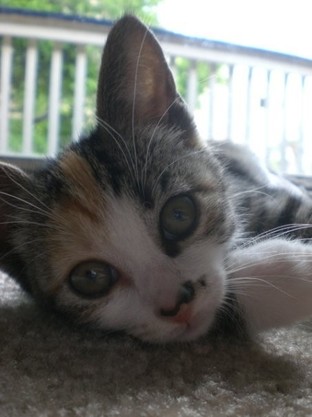

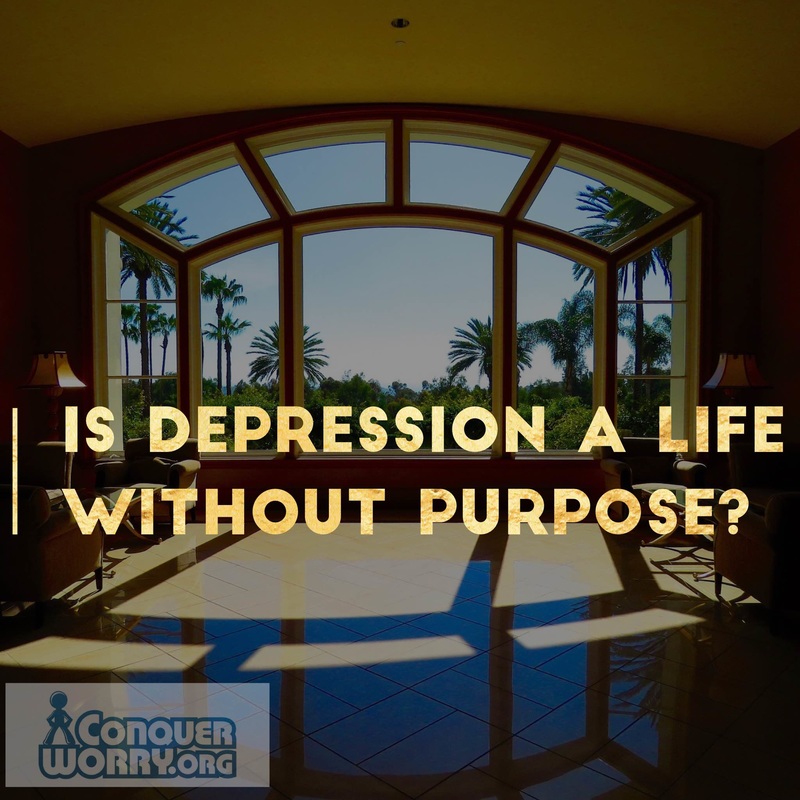

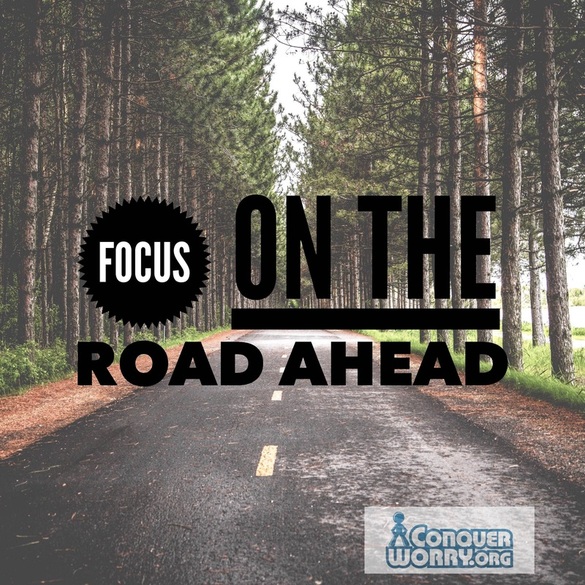

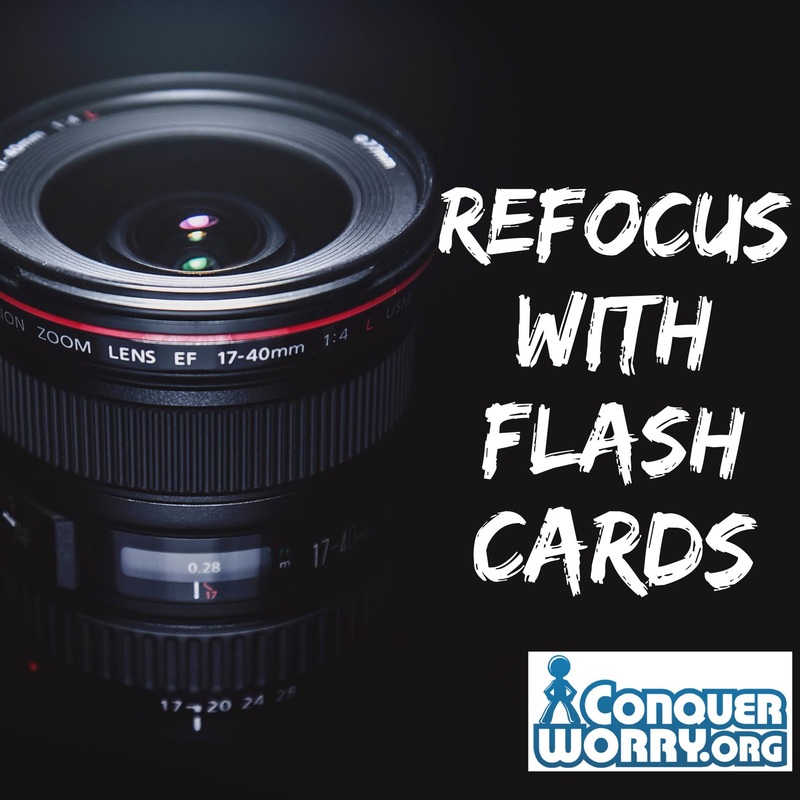
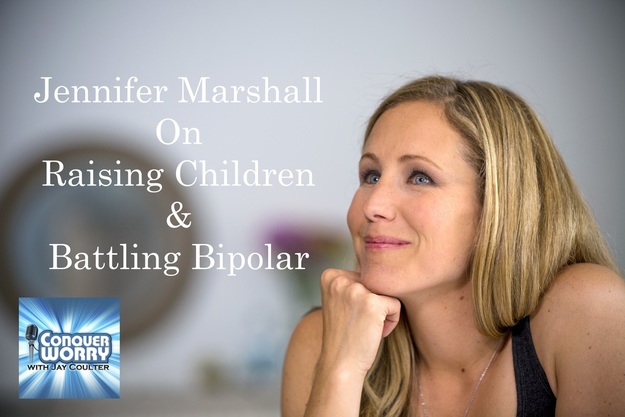

 RSS Feed
RSS Feed





